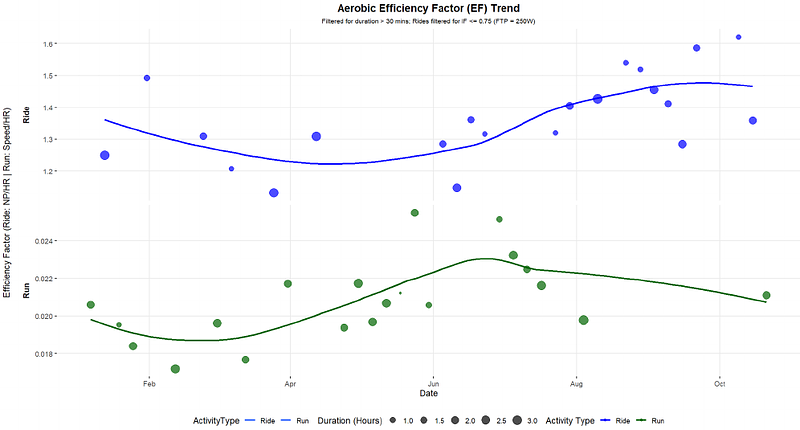Athlytics: A Computational Framework for Longitudinal Analysis of Exercise Physiology Metrics from Wearable Sensor Data

Athlytics: A Computational Framework for Longitudinal Analysis of Exercise Physiology Metrics from Wearable Sensor Data
HE, Z.
AbstractThe proliferation of wearable sensors provides large-scale longitudinal physiological data collected in real-world settings, offering unprecedented opportunities to investigate dynamic human responses to exercise interventions. However, systematically quantifying key physiological indicators related to adaptation and fatigue from these dense time-series data, particularly from popular platform APIs like Strava, and performing standardized, reproducible integrative analyses currently lacks established open-source workflows in R, posing significant practical and computational barriers. Researchers often expend considerable effort on custom programming, limiting analytical scale and efficiency. To overcome this critical bottleneck and empower broader research applications, we developed and introduce \\texttt{Athlytics}, a computational framework specifically designed for processing Strava API data directly within R for longitudinal exercise physiology analysis. This framework uniquely (or \"provides a dedicated means to\") seamlessly integrates data acquisition with the calculation of key physiological indicators (such as ACWR reflecting training stress balance, EF assessing aerobic efficiency, and physiological decoupling indicating cardiovascular stability), based on activity summary data while carefully addressing necessary approximations for composite load metrics like TSS/HRSS, and multidimensional time-series visualization. By providing standardized function interfaces, \\texttt{Athlytics} significantly lowers the technical barrier for conducting complex longitudinal analyses (e.g., modeling individualized physiological responses, identifying training patterns in large cohorts), enabling researchers to efficiently test hypotheses regarding the dynamic interplay between training stimuli, physiological efficiency, and stress responses. This work provides an open-source computational tool that fills a critical gap, contributing by substantially enhancing the feasibility, efficiency, and reproducibility of quantitative exercise physiology research utilizing widely available physiological sensor data through standardization and automation. The package (\\url{https://github.com/HzaCode/Athlytics}) provides an important foundation for standardizing and applying computational methods in this field.